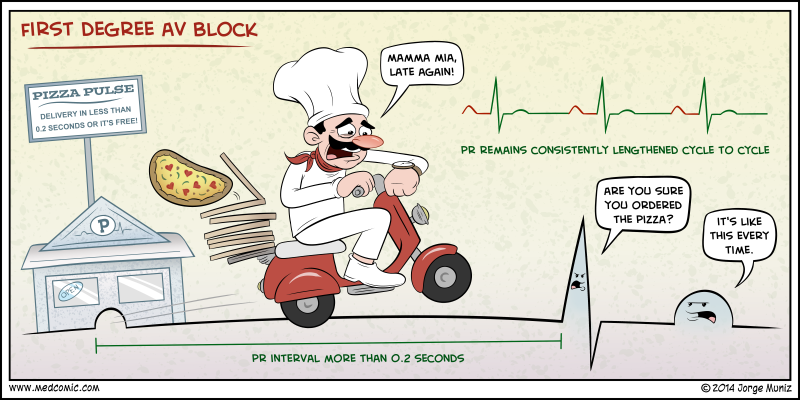Nursing Study: First Degree AV Block
In first-degree heart block, the electrical signal is slowed as it moves through the heart. When this occurs between the atria and the ventricles, it appears as a slightly longer, flatter line between the P and the R waves on the EKG.
First-degree heart block rarely causes any symptoms. Well-trained athletes and young people are at higher risk for first-degree heart block caused by an overly active vagus nerve. Activity in this nerve slows the heart rate. Some medicines, such as digitalis, also may trigger first-degree heart block.
First-degree heart block usually doesn’t require treatment.

Leave a Reply